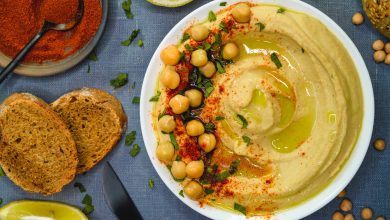I’m a Former Boxer. But Prison Is My Toughest Match – Ganjactivist.com

I woke up one morning and made a cup of coffee. I looked out the window facing the third tier. A red smog lingered in the sky.
My neighbor in the next cell, Dave, said it reminded him of an old science fiction movie called “Red Planet.” Breathing in, it felt like I was choking on burning air. It was fire season in Northern California, and part of the environment I live in as an elderly person in San Quentin State Prison.
Before this life, I used to be somebody. A proud New York Puerto Rican. A former Golden Gloves boxer who fought in the New York City Golden Gloves Tournament in Madison Square Garden in the mid 1970s. An all-Marines boxing team coach. I got married in my Marine dress blues to a Puerto Rican beauty. God gave me gifts, but my ego outweighed my common sense.
My mental and physical capabilities have eroded over nine years in prison. It feels like I’m slow dancing with death. Maybe the karma generated by my past disrespect has come back to bite me in my old, wrinkled ass.
Older prisoners have a hard time in general, but during this COVID-19 era it has been an especially difficult battle. By its very nature, incarceration forces limits on older people. Confinement can make us feel like we’re suffocating.
This feeling of suffocation has been spiritually crippling for me. I’ve transferred prisons in ice-cold buses eight times in nine years. As a senior, it has seemed like the older I get, the harsher the punishment. At each new prison, I enrolled in different programs, including college classes, art seminars and other rehabilitation programs. But with each move I was pulled out of those programs.
Do prison administrators care to rehabilitate those of us who are old and getting older? Older people with high-risk medical problems shouldn’t be placed in tiny cells with another inmate. Subpar medical treatment is far too common here, and I won’t even mention our inadequate living conditions.
Prison for older people is not just custody but eternal punishment, regardless of what you’ve stood for or accomplished during your lifetime. Your past achievements are deleted from the record books. You are what another person says you are — this is the real “cancel culture.”
People love to play God. Judges hand out draconian sentences like candy. I understand I committed a crime, but I shouldn’t be erased from the human race because of that.
Some kids have been locked up for 20 years or more. But if they are released in middle age, they still have a chance at rebuilding their lives. Older people who have received more than 20 years have little chance of survival or remaking themselves on the outside again.
People have experienced declining health conditions due to COVID-19 and the unhealthy environment of prison. I’ve dealt with dizziness, coughing, pain below my neck, a bloody eye, diabetes, asthma and many other health conditions.
Bullying in prison has also become a nightmare for older people. There are self-important people in here who love to control their environments and boss others around, especially those who have less power. Older men, many of whom are pacifists, generally wind up being bullied in these scenarios.
Even if you’ve worked hard all of your life and committed only one crime, you can still wind up in prison with everything lost — everything you’ve ever earned, and everything you would have ever earned. Just ask the poor older dudes who owe half the money that is coming to them.
Even if you work in the chow hall for 8 cents an hour, you still pay restitution.
The elderly in prison are invisible and are discarded in this country. Long, unequal sentencing has locked people away for decades and caused children to grow up without fathers and mothers, which perpetuates the cycle of mass incarceration.
But people don’t care about how we change. People don’t care if we get another chance to rebuild our lives. People look at us as settled — as the people we were when we came into prison, not who we’d be if we got the chance to leave.
This article first appeared on Prison Journalism Project and is republished here under a Creative Commons license.




